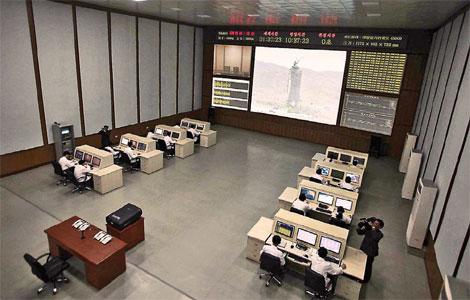 |
|
|
|
|||||||||||
Rapid large-scale urbanization and improper rural development are the main challenges to protecting China's cultural heritage, experts have warned.
The 7th Wuxi Forum on the Conservation of China's Cultural Heritage heard on Wednesday that unsuitable development in rural areas had damaged the structure, environment and features of some historical villages in China.
The harmonious relationship between man and nature had been broken, and accelerated urbanization had pushed historical cities and towns to host large populations, Tong Mingkang, deputy director of the State Administration of Cultural Heritage, said at the Wuxi forum in East China's Jiangsu province.
Statistics showed that the total of built-up urban areas in China doubled to 40,000 square kilometers between 1996 and 2010.
"Problems with the sustainable development of cultural heritage have been exposed in the past 20 years of rapid development. Moreover, the sustainability of cultural heritage protection has become extremely challenging, given current resources and environmental circumstances," said Chen Tongbin, a senior member of the China Architecture Design & Research Group.
Zhang Jie, an architecture professor at Tsinghua University, said: "Although our country has a diverse cultural heritage, not all of it is suitable for tourism. We should protect and develop traditions in accordance with their different features and on the strength of in-depth surveys."
In some underdeveloped regions of China, historical buildings and villages have been abandoned, as a growing number of people move to cities, while others have deteriorated due to a lack of maintenance, the forum was told.
Meanwhile, in urban areas, it has become fashionable to develop ancient streets for modern purposes, such as shopping malls or entertainment hubs.
Abhimayu Singh, the representative of the United Nations Educational, Scientific and Cultural Organization in China, said that only by understanding that cultural heritage is the core of social development, can people know that heritage protection is a "mutual responsibility" and not just a "label".
Mounir Bouchenaki, special consultant to UNESCO, said people should let decision-makers know that investment in cultural heritage is key to social development.
During the 12th Five-Year Plan (2011-15) period, the State Administration of Cultural Heritage will create a "credible, representative and balanced" preparatory list for China's world cultural heritage, said Tong Mingkang.
He added they would also set up an early-warning monitoring system across the country to combine cultural heritage and emergency conservation efforts.
A "Wuxi proposal" was put forward on Wednesday to promote the sustainable development of world heritage sites as one of the commemorative events at the 40th anniversary of UNESCO's Convention Concerning the Protection of the World Cultural and National Heritage.
Established in 1972, the convention now has 188 member countries and 936 world heritage sites. Since joining the convention in 1985, China has listed 41 heritage sites - 29 cultural heritage sites, eight natural heritage sites, and four mixed heritage sites.

|

|

|

|

|

|